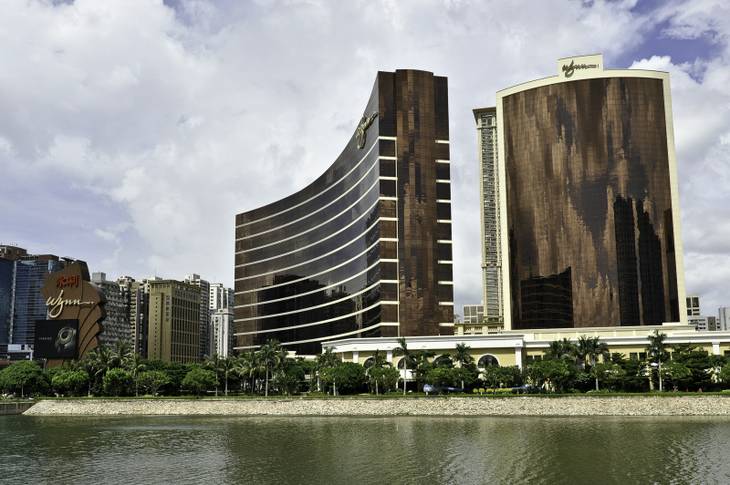Although Macau has surpassed Las Vegas as the largest generator of gaming revenue in the world, it still can’t match it as a tourism destination, says an emeritus professor at UNLV. And that could eventually hurt the Chinese city.
William Thompson, an emeritus professor of public administration and a longtime observer of the local casino industry, addressed the CEO-CFO Group of Las Vegas Thursday, summarizing a public presentation he made at the Macau Polytechnic Institute in October after a two-month stay there as a visiting scholar.
Thompson said Las Vegas would benefit from Macau’s success in the long run because many Chinese visitors would eventually make trips to Southern Nevada after visiting casinos operated by American companies Las Vegas Sands, Wynn Resorts and MGM Resorts International.
“It’s interesting that while Macau has also been called ‘the Las Vegas of the East,’ Las Vegas has never been called ‘the Macau of the West,’” Thompson said. “Las Vegas has always been ahead in entertainment, shopping and all forms of tourism.”
Thompson said the tourism infrastructure would enable Las Vegas to maintain its place as an appealing destination while Macau could languish if it doesn’t diversify its product.
Over the past three or four decades, several casino venues have seen their revenue decline because of “player fatigue” — a decline in high-roller traffic because players tire of the destination. Thompson said Macau also was susceptible to increased Asian competition from Singapore, South Korea, the Philippines, Malaysia, Vietnam, India and Japan.
Macau is in a location that could suffer in an earthquake, tsunami or typhoon, and it’s also in a volatile political region at a time when trade disparities between the United States and China could become an issue.
Las Vegas has diversified its tourism product over time, and that has resulted in gambling win representing a smaller percentage of Strip revenue. Thompson said in 1989, gambling winnings represented 59 percent of the revenue resorts generated on the Strip. By 2010, that percentage had fallen to 38.7 percent.
Thompson said the percentage of revenue attributed to casino play is 90 percent in Macau.
Casino revenue in Macau, generated primarily by Chinese high-rollers at baccarat tables in the city’s 34 casinos, was important to the American companies operating there to survive the recession. Thompson said had it not been for the gaming revenue generated in Macau, he suspects Las Vegas Sands, Wynn and MGM would have had to file for bankruptcy protection.
Macau could still change course and challenge Las Vegas for tourism revenue if it pursues some infrastructure and philosophical changes.
Thompson said Macau should embrace its history as a Portuguese colony to attract tourists and improve its transportation and pedestrian access. Las Vegas succeeds as a resort city because the Strip is conducive to foot traffic and visitors often make it to five or six casinos every trip. In Macau, most gamblers plant themselves at a single casino and most don’t stay overnight.
Thompson also said if Macau would develop a beach, it could attract tourists who enjoy spending time in the sun. He said Macau should conduct research about the feasibility of developing eco-tours and walking and biking trails.
Thanks to Las Vegas Sands and the Venetian Macao, the city has begun to drum up business as a convention destination. Thompson said Macau also is ripe for medical tourism with the number of hotel rooms increasing, particularly on the Cotai Strip, and several specialty medical facilities moving to the city.
